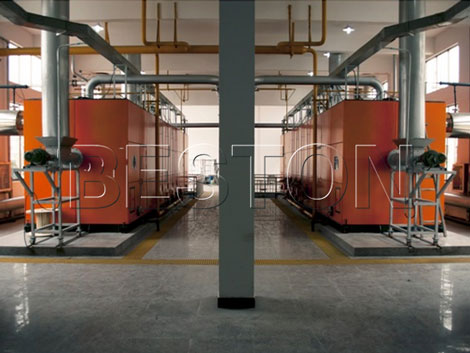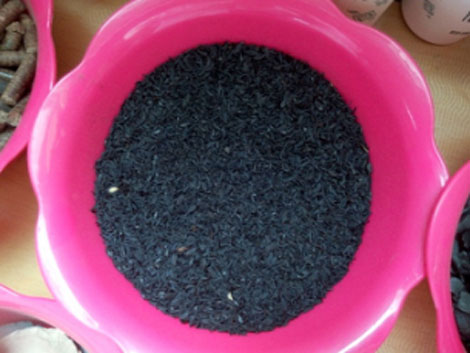Get Charcoal from Rice Hull Carbonizer
One of the better ways of making rice asks more valuable, other than using them as manure, is by transforming them into carbon. With the help of rice hull carbonization machine, it’s possible to produce carbon which can further be processed into activated carbon. Other raw materials that can be used in the process include coconut shells, palm shells, crops stalks, wood chips among other forms of biomass. Having a rough idea of a rice husk carbonizer can be important in getting a farmer started on coal making process.
Rice Hull Carbonizer Machine Design
A rice husk carbonizer is made of carbonization host, shredder, crusher, spray tower, gasifier and de-de-dusting system. The carbonizer has a double-layer design, where the lower part of the machine contacts as much hot air as possible, helping raise utilization efficiency right from the start. The carbonizer maximizes the heating up to three times during the entire carbonization process. After this optimal usage of heat, the temperature of the emitted gas falls below 100 degrees centigrade.

Rice Hull Carbonizer Machine for Sale
How Rice Hull Carbonizer Works
Raw materials are first fed into the rice husk gasifier after which fuel gas is piped into the cooling system to get combustible gas. The generated gas is then used to carbonize the raw material. During the carbonization process, combustible gases like oxygen, carbon monoxide and methane are purified and then take through a cyclone use. With biomass pyrolysis plant for sale, continuous production process through automatic feeder and discharging system. That ensures that raw materials are fed from one side while discharging is done form the other side, which maximizes on production efficiency.
Majority of today’s rice husk carbonizers are designed with central control systems that separate the machine from the operator. Also included is a protecting shell that helps the operator avoid direct exposure to high temperatures. And with the machine’s temperature detection system, operators are always assured of their safety.
End-Product of Rice Hull Carbonization
After a high temperature pyrolysis that involves volatile gas, sulphur emission and carbon enrichment, the end product is man-made carbon. The product usually contains up to 90 percent of fixed carbon content, almost double the carbon percentage in general coal. Carbonized rice hull can be reprocessed into activated carbon (up to 75 percent) and used in manufacturing industries.

Carbonized rice hull getting from rice hull carbonizer
End-Product Application of Rice Husk Carbon
-Used as fuel in factories
-Can be used domestically as fuel
-Charcoal powder can be exported to the interactional market
-Activated carbon can be used for waste water recycling
-Carbon is a perfect raw material for making new road bricks. If you wanna know more information about Beston wood charcoal making machine and by-products, contact Beston.
Advantages of Acquiring Rice Hull Carbonizer
Creates a Source of Income
Transforming rice husks to coal is one of the best ways of making extra income without having to source for any raw materials. A typical rice hull carbonizer can transform any biomass material into coal or activated carbon. And what’s more, most of the rice hull carbonizer machine designs are easy to use, which means a farmer can operate on his own without hiring any workers. That means more income from the carbon generated.
Reduces Waste
Rather than leaving waste rice husks on top of the soil to decompose, it can be prudent to turn them into coal to deal with the overwhelming state. That means rice hull carbonization can help in better control of waste as the farmer generates some income.
Increases Pulling Inefficiencies
The fact that most farmers dispose rice hulls using landfills does not means they will work to improving the quality of soil after decomposing. Rice carbonizer machine typically helps in pulling inefficiencies that surround rice seedlings. Carbonized rice husks can be used for soil fertilization, removing water impurities in the soil and more. Contact Beston to get the efficient one.
